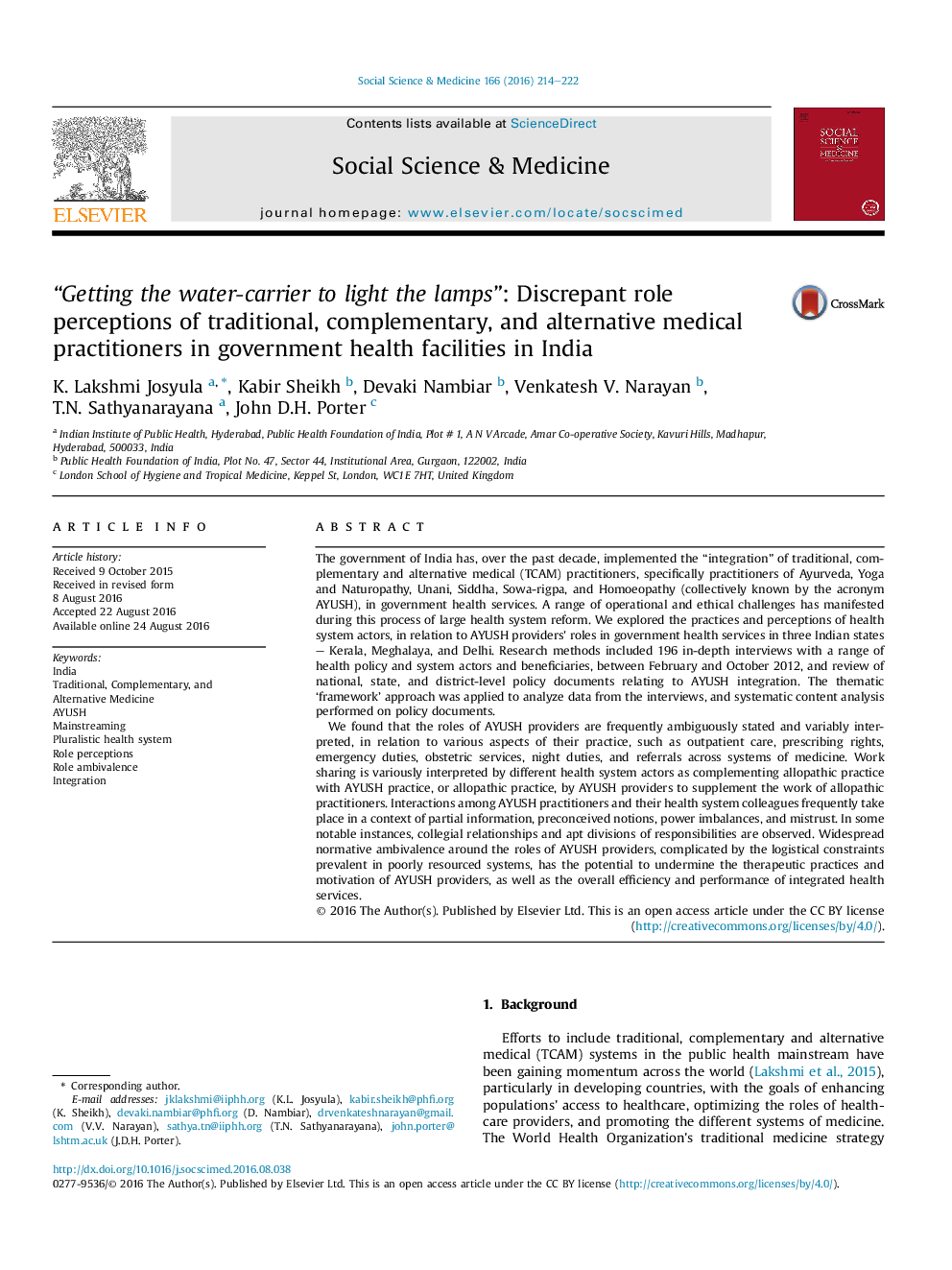| Article ID | Journal | Published Year | Pages | File Type |
|---|---|---|---|---|
| 7329312 | Social Science & Medicine | 2016 | 9 Pages |
Abstract
We found that the roles of AYUSH providers are frequently ambiguously stated and variably interpreted, in relation to various aspects of their practice, such as outpatient care, prescribing rights, emergency duties, obstetric services, night duties, and referrals across systems of medicine. Work sharing is variously interpreted by different health system actors as complementing allopathic practice with AYUSH practice, or allopathic practice, by AYUSH providers to supplement the work of allopathic practitioners. Interactions among AYUSH practitioners and their health system colleagues frequently take place in a context of partial information, preconceived notions, power imbalances, and mistrust. In some notable instances, collegial relationships and apt divisions of responsibilities are observed. Widespread normative ambivalence around the roles of AYUSH providers, complicated by the logistical constraints prevalent in poorly resourced systems, has the potential to undermine the therapeutic practices and motivation of AYUSH providers, as well as the overall efficiency and performance of integrated health services.
Related Topics
Health Sciences
Medicine and Dentistry
Public Health and Health Policy
Authors
K. Lakshmi Josyula, Kabir Sheikh, Devaki Nambiar, Venkatesh V. Narayan, T.N. Sathyanarayana, John D.H. Porter,
